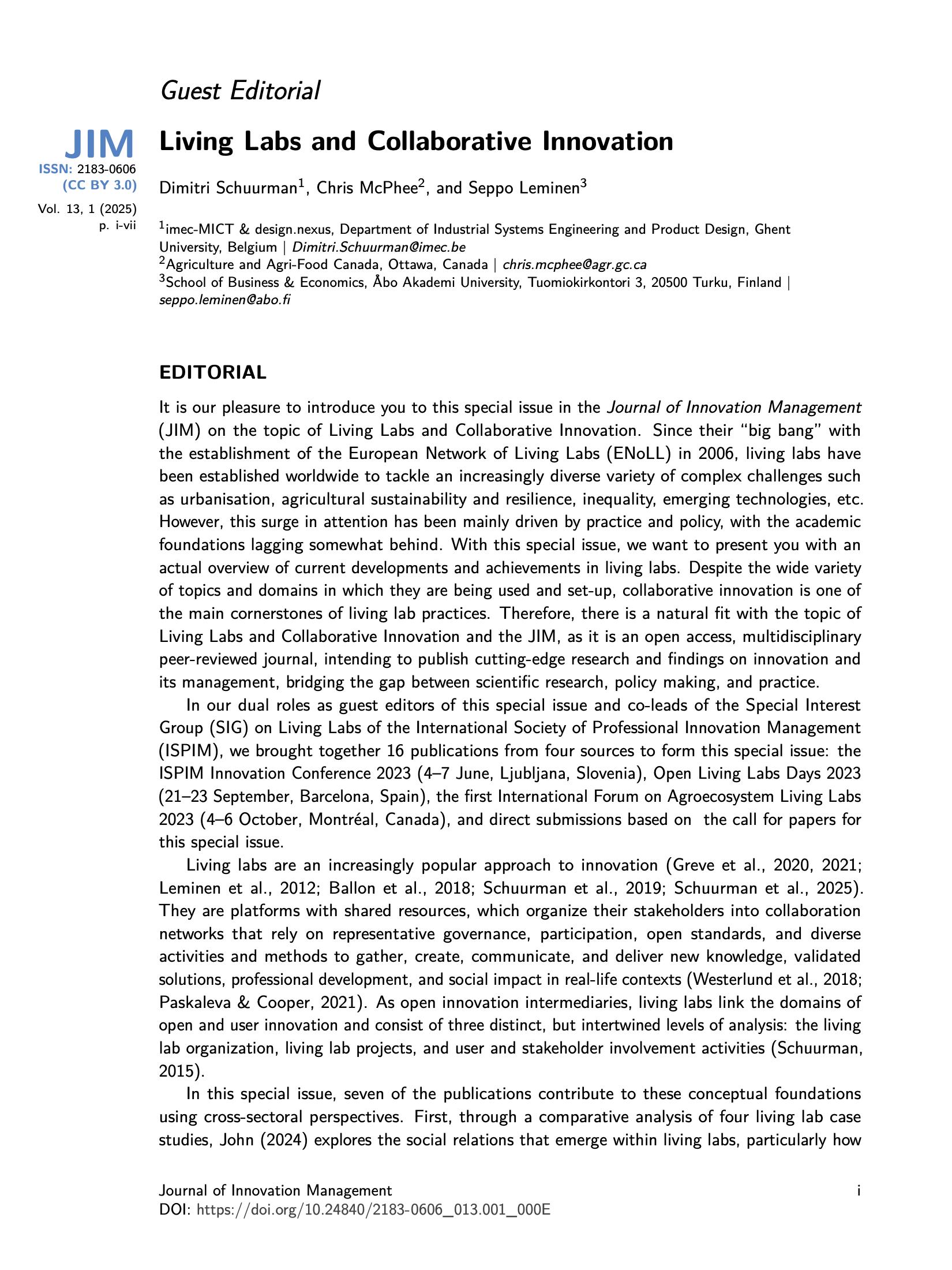Living Labs and Collaborative Innovation [Guest Editorial - Special Issue on Living Labs and Collaborative Innovation]
Main Article Content
Abstract
It is our pleasure to introduce you to this special issue in the Journal of Innovation Management (JIM) on the topic of Living Labs and Collaborative Innovation. Since their ``big bang'' with the establishment of the European Network of Living Labs (ENoLL) in 2006, living labs have been established worldwide to tackle an increasingly diverse variety of complex challenges such as urbanisation, agricultural sustainability and resilience, inequality, emerging technologies, etc. However, this surge in attention has been mainly driven by practice and policy, with the academic foundations lagging somewhat behind. With this special issue, we want to present you with an actual overview of current developments and achievements in living labs. Despite the wide variety of topics and domains in which they are being used and set-up, collaborative innovation is one of the main cornerstones of living lab practices. Therefore, there is a natural fit with the topic of Living Labs and Collaborative Innovation and the JIM, as it is an open access, multidisciplinary peer-reviewed journal, intending to publish cutting-edge research and findings on innovation and its management, bridging the gap between scientific research, policy making, and practice. (...)
Article Details
Authors who publish with this journal agree to the following terms:
- Authors retain copyright and grant the journal right of first publication with the work simultaneously licensed under a Creative Commons Attribution License that allows others to share the work with an acknowledgement of the work's authorship and initial publication in this journal.
- Authors are able to enter into separate, additional contractual arrangements for the non-exclusive distribution of the journal's published version of the work (e.g., post it to an institutional repository or publish it in a book), with an acknowledgement of its initial publication in this journal.
- Authors are permitted and encouraged to post their work online (e.g., in institutional repositories or on their website) prior to and during the submission process, as it can lead to productive exchanges, as well as earlier and greater citation of published work (See The Effect of Open Access).

